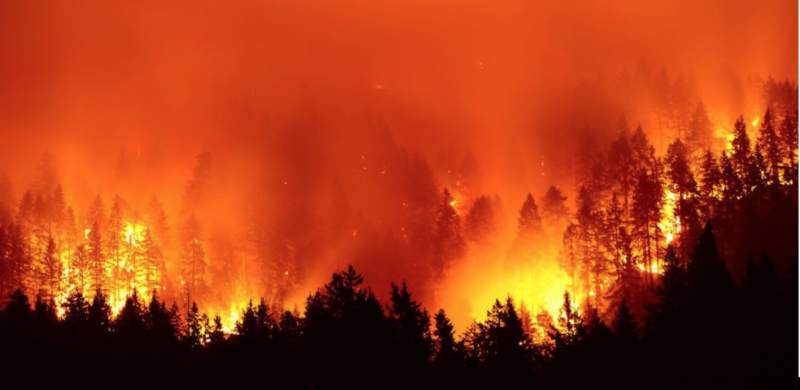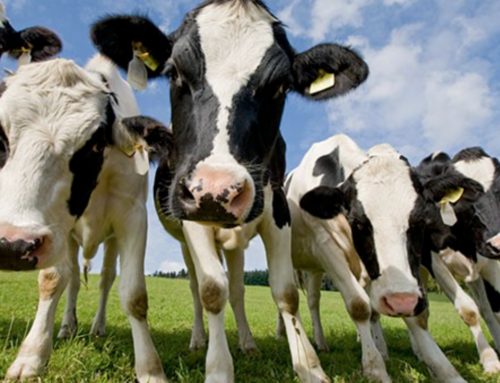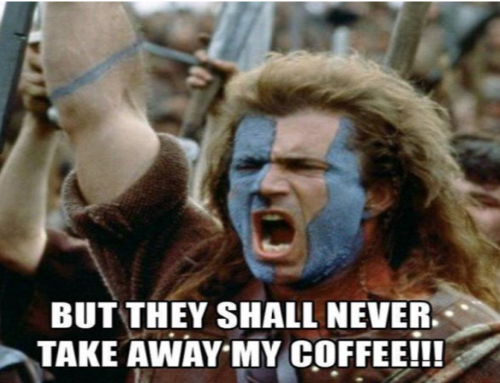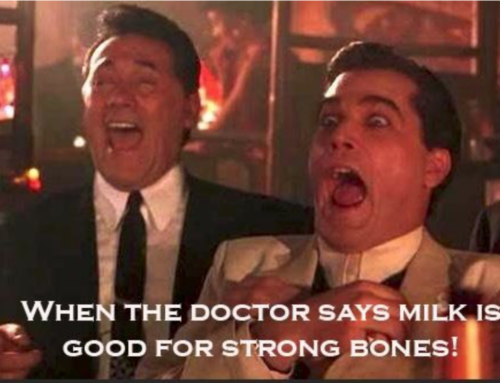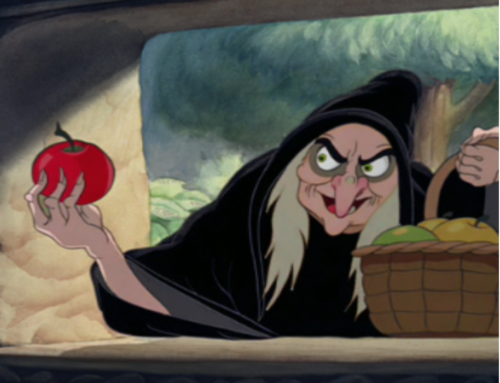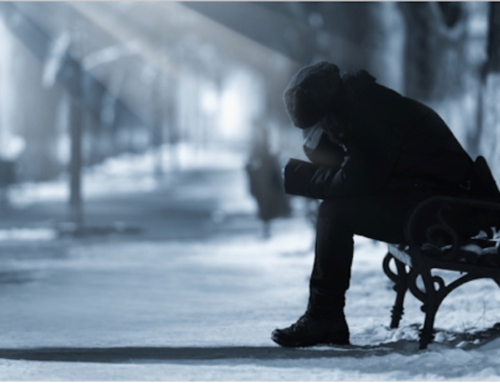Let’s get right to it, the raging fires in the Amazon are an incredibly concerning environmental disaster with huge implications for the environment on so many levels. They highlight, with alarming clarity, the current accelerating rate of deforestation occurring globally as they continue to burn.
Brazil has 85% more fires burning currently than this time last year — up to 80,626 acres nationwide as of late August. The rate of land clearance has reached one and a half football fields a minute.
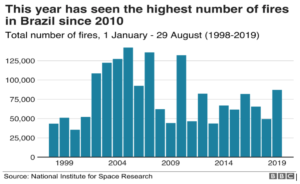
Some of the main causes of deforestation are logging; clearing for agricultural needs; natural forest fires; and urbanization and mining. But by far the worst contributors to deforestation are cattle ranching and farming. They are responsible for as much as 80 percent of the ongoing deforestationglobally, and a significant portion of the global beef supply originates on land that was initially rainforest.
VegNewsreports, “the record-breaking fires that are currently blazing in the Brazilian rainforest were likely set by farmers who want to clear the land for cattle ranching, environmental organizations say. The human-made fires happen every year in specific areas and are a common last stage of the deforestation process in the Amazon region.
According to the Folha do Progresso, a publication from the southern part of the Amazonian state of Pará, farmers and ranchers in the region organized what they called “a day of fire” for Aug. 10, where they would set forests aflame to clear land for pasture and planting.
Why is it important?
According to Conserve Energy Future’s facts on the Amazon, “Fact 7: The Amazon trees and plants provide more than 20% of the world’s oxygen. Considering the large size of the rainforest, it generates more than 20% of the globe’s oxygen and perhaps the reason it is known as the “lungs of the planet”. The vegetation in the Amazon continuously draws in and recycles carbon dioxide into oxygen and releases it into the atmosphere, acting as a giant air machine.”
As the number of fires increase, greenhouse gas emissions do too. This makes the planet’s overall temperature rise, the organization said. As the temperature increases, extreme weather events like major droughts happen more often. That is because trees absorb not only the carbon dioxide that we exhale but also the heat-trapping greenhouse gases that human activities emit. As those gases enter the atmosphere, global warming increases a trend that scientists now prefer to call climate change.
In addition to increased greenhousegas emissions, deforestation exposes the soil to the sun’s heat which dries up the moisture inside the soil. Nutrients evaporate and it affects the bacteria that help to break down organic matter. Due to this, rain washes the soil surfaces, and erosion takes place.
Deforestation alters land and as a result, many of the plants and animals do not survive (‘biodiversity loss’). Many wonderful species of plants and animals have been lost, and many others remain endangered. As each species of an ecosystem relies upon other species, loss of one species can have far-reaching consequences for other species too. We lose about 50 to 100 species of animals each day due to the destruction of their habitats. Millions of plants and animal species are on the verge of extinction due to deforestation.
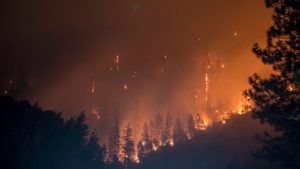
The chopping down of trees also disrupts the flow of water and leads to floods in some areas.
The water level of the rivers increases suddenly, causing floods. When it rains, trees typically absorb and store a large amount of water with the help of their roots, often preventing floods. But with deforestation and no roots to absorb water, erosion of the soil destroys the surface of the mountains.
In addition to increasing emissions, deforestation contributes directly to a change in rainfall patterns in the affected region, extending the length of the dry season. This further affects forests, biodiversity, agriculture and human health. It’s a vicious cycle.
A Nation Geographic article published in February of 2019 states that “between 1990 and 2016, the world has lost roughly 502,000 square miles of forest, according to the World Bank—an area larger than South Africa. (Note that this does NOT include the current fires in the Amazon!) Since humans started cutting down forests, 46 percent of trees have been felled, according to a 2015 study in the journal Nature. About 17 percent of the Amazonian rainforest has been destroyed over the past 50 years, and losses recently have been on the rise.
What can WE do?
Environmental disasters that rage on like this can be infuriating to watch and often leave us feeling helpless, in part because there seems to be little we can do individually to rectify the situation in a timely fashion. Politicians and corporations, both local and foreign, seem to control our destiny as they allow our planet to be decimated for their own financial gain.
Nonetheless, there are things you can do:
- Adopting a whole food, plant-based diet – eliminating all meat, dairy, and eggs or significantly cutting them out — decreases the demand that ranchers and farmers are struggling to meet. Farmers are using the cleared acreage to grow genetically modified grains much of which will be fed to cows, pigs, chickens and even fish. The only way to make an impact on the governments and corporations is to take away from their bottom line.
- Get on a few email distribution lists of environmentally active groups and follow the latest news, sign petitions, and perhaps become active yourself. Here are just a few: Greenpeace, Friends of the Earth, The Environmental Working Group and/or One Tree Planted.
- Don’t give in to cynicism. No matter how small or insignificant you may think your part is, we can tell you this: you matter. Your choices will have an impact on the whole, even if you do not always see how they do. We cannot claim to have the solution for the global problem of deforestation, nor do we expect you to. But we do know that doing nothing is going to severely limit our ability to show up in the world as an active player in bringing a solution to this problem. Do your part and stay positive. We all need to step up to make this world better for all.
Stay awake and take action where you can. If we don’t who will???!
